Superheroes: Are They Really Heroes?
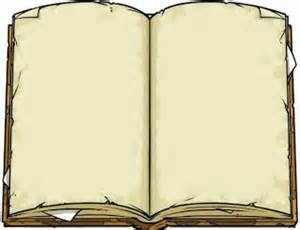
Folklore, broadly conceived, is the study of two things. The first being “folk”: any group of people who share at least one common factor and the other aspect is the “lore” which is the material/musical/oral materials of the folk (Dundes 1965:2). There is little agreement between folklorists about what exactly makes for the proper materials of study for folklore which has led to the study of several different factors all under the heading of folkloristics (3). The goal of this work is to capitalize on the amorphous qualities of folkloristics, to study the lore of two folk groups. The first being “traditional” authors and the second being comic book authors and the way these two groups portray heroes.
Folklore has been called historical science responsible for studying the traditions of a folk as they appear in custom, belief, magic, ritual and most importantly popular fiction (Krappe 1964: xv). Because of this folklore has crafted several definitions about tale types and the motifs that exist within them. Of most importance here are the definitions and defining characteristics of “the Hero.” No fairy tale can exist without them and it seems that the literary tradition of the hero has inspired other groups of folk to craft stories around their unique abilities and features. Enter superhero comic books. The specific genre of superhero comic books deals with heroes that are inherently physically superior to the rest of humanity (save super villains). They have unique abilities which mark their bodies as different from and superior to “normal”. What is being asked is whether a superhero is a hero with super powers or are they a different breed of character/motif altogether.
Real World Heroes
I start with a few definitions of what it is to be a “Real world” hero to give some context. Culture has always provided room for heroes; some argue that heroes are cultural necessities and products of history, while others hold that heroes are not important to the creation of history, however, all agree that we continue to need them (Sanchez 2000: 58). So what makes a hero? The term hero is generally understood as an individual who is viewed positively. This definition isn’t clear, as across cultural, moral and social borders the distinction of who a hero is and what makes an act heroic is very different (Sullivan & Venter 2010: 471). In an attempt to work out what makes a hero heroic, three psychological experiments were designed to gather the required data to form a definition of what contemporary people would consider a hero. Throughout each of these experiments, participants were asked to define general traits of heroes as well as to list explicit traits of a specific person they thought of as being a hero. While the study does not disclose the nature of the heroes, it is assumed that these were all people living or dead. That is to say the study does not make a category for literary/folk heroes.
The number one answer given throughout the studies was consistently related to the notion of “providing a standard of conduct/being a role model” closely followed by “Representing the ideal self-image, shows achievement or accomplishment, being intelligent, loving and religious” (Sullivan & Venter 2010: 474-477). It is no surprise then to say that a hero in the modern context is one who shows a sense of morality, somebody the general public can look up to and most importantly emulate. This notion is supported by existential psychologist and mythologist Rollo May. May states that we need myth to live a full and inspired life and at the center of these myths are heroes. To May, heroes are myths in action because they embody our “aspirations, our ideals our beliefs” (May 1991: 54). He goes on to say heroism is important because it reflects our own sense of identity; we created the myths and the heroes that populate them. In this way we have created a hero that reflects our own ideals back to us, therefore it is not unexpected to see virtues that society has held as being ‘good’ forming the base of who we call heroes.
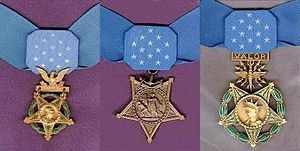
To go further Sanchez argues that contemporary society has often misconstrued and overused the term hero (2000: 58), applying it to people who do not have the moral fibre that has been mentioned, though he does go on to say that heroes are not meant to perfect. What should set them apart is their steadfast singleness of purpose held on to even in the face of overwhelming odds (59). The above definition of the modern-day hero places us in a position to examine the defining characteristics of literary heroes which we can then use to assess the heroic nature of superheroes. As we have seen, the contemporary hero is somebody of strong moral character that can be a role model and who has a singleness of purpose (supposedly good), who may not be perfect but who nevertheless acts for the greater good of society. This definition is heavily based on the wants and desires of a culture that is no longer producing the types of literary heroes described by Raglan and Campbell. So it remains to ask, what are the constituent parts of a literary hero?
Folklore Heroes
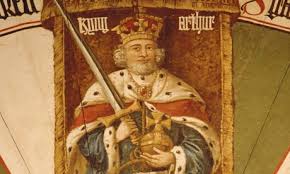
Joseph Campbell sought to define the hero through the journeys that make up their narratives.For Campbell, “the hero is the man of self-achieved submission” (1949:16). That is to say a hero whose purpose it is to venture forth on a journey through the mystical veils of the world, seeking knowledge from his betters in the hopes of returning with a power that is regenerative in nature.
Campbell says that the first work of the hero is to retreat from the world of appearances and go to “causal zones of the psyche where the difficulties really reside, and there to clarify the difficulties, eradicate them” (18). Through this explanation we understand that the hero of myth as he and Raglan will call them, is more than just a paragon of virtue, instead they stand for humankind’s deep desire to eradicate societal pressures so that we can freely express our inner desires which are linked in the collective unconscious. By developing notions of heroes, humanity has fabricated narratives that show how alike we are in our “inner world”. Heroes are not just to be emulated, they are to be revered and understood as integral parts of human collective psychology and social structures.
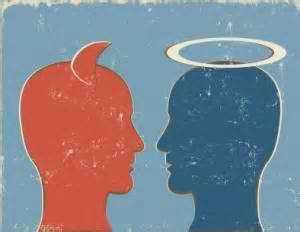
Lord Raglan’s major work based around heroes began when he encountered the story of Oedipus and found striking similarities to other heroes (2003: 173). Unlike Campbell, Raglan sought to make the most comprehensive definition of a hero based on characteristics that he saw repeated through classical figures and gods, eastern folkloric heroes, biblical persons and Celtic folktales. Raglan included any incident that formed a pattern, whether it was miraculous or insignificant. As long as it appeared in the stories it was catalogued and added to his final definition (174). Raglan, then, by so carefully defining heroes, was able to show that folklore notables were created out of the mind of imaginative individuals and not historical figures that helped shape the present.
Taken together, Campbell and Raglan make an interesting pair of theorists who set out a foundational claim for what it is to be a hero of literature/folklore as a whole. With Raglan’s precision we are able to match particular aspects of a character’s creation and narrative and with Campbell we can look at the journey or progression of that narrative. Far from being the paragons of virtue and upstanding citizens of the modern definition of a hero, these heroes are contrived, created, replicated and spread by word of mouth and story. They represent a moral or an image that is tied more closely with archaic notions of right and wrong as opposed to the modern embodiment of what we would consider living the good life. This is not so strange when you consider that most of the folklore heroes were allowed to carry weapons openly and use them! Which brings us back to superheroes; unlike contemporary heroes, supers are allowed to carry weapons and use them and unlike folklore heroes supers partake in our everyday world in meaningful ways. So what makes a super hero a hero?
Superheroes
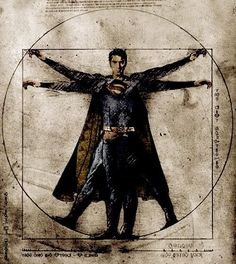
Superheroes succinctly defined are any character with a pro social mission who is in possession of super powers. These powers can be advanced technology, highly developed senses (mental or physical) or mystical abilities. Generally the superhero has a code name and an iconic costume which helps to define the origins and biography of the character (Coogan 2006: 30). Coogan’s definition admits to the heroes having a pro-social mission which generally means the supers are selfless and conform to the general understanding of what it is to be good. But this definition of the superhero more clearly demarcate them away from super villains instead of moving them toward the category of hero. It is necessary to be pro social and selfless so nobody confuses you with your arch nemesis who is selfish and anti-social. Further, the superhero does not seem to follow the same journey as the literary hero. Few superheroes set out to bring back a power to heal their community. While the Fantastic Four and Avengers have indeed had to seek out different objects of power, most superheroes go about their missions alone without a specific need in mind (other than to stop crime).
According to Bradford Wright, the only motivation a superhero has is the desire to help humanity (2001: 185). This addition supports the superhero striking out into new ground. The contemporary hero and the hero of folklore do not have this characteristic as part of their make-up. They are often at the center of scandal and they do not have the morally perfect character of a fabricated being. Folklore characters, in comparison, are not always out to help humanity. Even taking into account Campbell’s notion of the return with experience, we see a limited opportunity for the powers that have been brought back to be used. It may be that the hero of folklore reaches out to a specific community and as such, can only make specific lives easier. In opposition to this the superhero knows no boundaries. While Black Panther rules in Wakanda he has more than once travelled to America to stop some evil from being committed against his own people or the world. The same can be said about superman (who can traverse the world in seconds) and the extraterrestrial exploits of the X-men, Avengers and Fantastic Four as they have literally saved the entire planet from an alien menace. This is not to say that there is not some minor overlap in the folkloristic world. Religious heroes such as Zoroaster, Jesus and Mohammed are portrayed as bringing redemptive powers to the world to save humanity from some form of destructive entity. I do not include superheroes, however, on the level of divinity, although many do share similar abilities.
According to Raglan’s index, and as far as my research has found, no single hero comes close to making more than a few of the categories that he mentions. This is largely due to the fact that superheroes come in different types as well. There are the strong men (Superman, Captain Marvel), Science creations (Hulk, Fantastic Four), Mutants (X-Men), Mystics (Dr. Strange, Dr. Voodoo) and many more. They are not all created equal so they cannot be defined by one catch-all theory. While many characters touch on some of the aspects that Raglan set down, many do not come close to having a sufficient amount of those definitions as part of who they are.
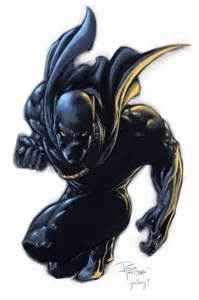
Looking at the hero journey and the hero checklist leads us to an interesting conclusion. Superheroes are not part of either attempt at defining a hero. They are a fusion of the old and new with an interesting spin that marks them off as a separate class of hero. Superheroes are a type of hero that rarely dies, but who may be depowered (Spivey &Knowlton 2008:53), who are connected to humanity but rarely to specific individuals (Peterson &Park 2008: 8), who have a definite mission that is reflected in their costume and most importantly, they have a secret identity which allows them to be a hero at specific times of their choosing (Coogan 2006:31). Taken together it is these aspects that drive the superhero convention. Adding on the super powers makes them super but even depowered supers are still superheroes!
What is set down here is not a major revelation to comic book fans, but what it does do is draw attention to the use of a word that are taken for granted. When anybody uses the term hero, they are referring to something specific. In the contemporary world it means something vastly different from the folklore world and now we see that it means something different again inside the pages of a comic book. So what do we get to take away? I think that we get to revel in our idolization of superheroes (even if it is counterintuitive) because they are tied to the real contemporary wold, they have powers that we wish we had but they also have extraordinary missions based around saving people. This is what makes them heroic and this is what makes them popular.
Works Cited
Campbell, J. (1949). The Hero With a Thousand Faces. Meridian Books: Cleveland, Ohio
Coogan, P. (2006). Superhero: The secret origins of a genre. Monkey Brain Books: Austin, Texas
Dundes, A. (1980). Interpreting Folklore. Indiana University Press: Bloomington
May, R. (1991). The Cry for Myth. Norton and Company: New York
Peterson, C. & Park, N. (2008). The Positive Psychology of Superheroes. In R.S. Rosenberg (Ed.) The Psychology of Superheroes. Benbella Books: Dallas, Texas
Raglan, F.R.S. (1936/2003). The Hero: A Study in Tradition, Myth and Drama. Dover Publications: Mineola, New York
Sanchez, T.R. (2000). It’s Time Again for Heroes- or Were They Ever Gone? The Social Studies 91:2, 58-61
Spivey, M. & Knowlton, S. (2008). Anti-Heroism in the Continuum of Good and Evil. In R.S. Rosenberg (Ed.) The Psychology of Superheroes. Benbella Books: Dallas, Texas
Sullivan, M.P. & Venter, A. (2010). Defining Heroes Through Deductive and Inductive Investigation. The Journal of Social Psychology 150:5, 471-484
Wright, B.W. (2001). Comic Book Nation: The transformation of youth culture in America. The John Hopkins University Press: Baltimore, Maryland
What do you think? Leave a comment.
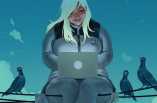
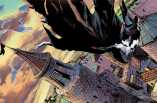
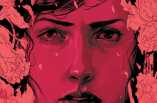
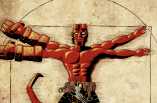
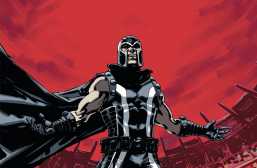
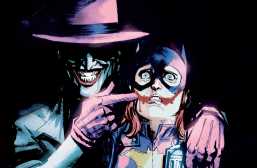
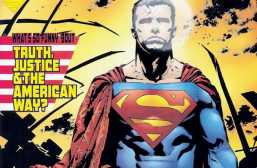
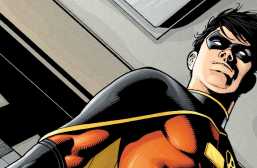
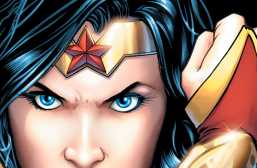
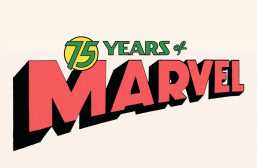
Very interesting study of the heroic archetype and how it relates to modern superheroes.
The superhero is nothing more (or less) than the contemporary version of a storytelling device. Superheroes represent a clear vision of various human attributes and struggles; they’re an examination of the human condition. But there are many ways to examine that condition. The superhero specifically is seems largely about how humans react to adversity and the challenge of building up the world – as well as taking responsibility for one’s part in that.
I actually despise “super heroes”, especially these days. Yes, some comics from the 60s, 70s & 80s were pretty cool, and often quite counter culture or critical of mainstream culture, but these days the entire “super hero” complex has been taken over by corporate marketing.
Yeah, it’s just another avenue of consumerism these days.
Most “super heroes” are really just ways at selling traditional values to kids via cool imagery, this is certainly true of Superman, etc.
Yeah, I pretty much despise today’s super hero pop culture.
As a kid, I didn’t once question the special effects in Superman. It inspired me to imagine myself flying around the world, and that’s what mattered. Now, those effects do look pretty dated (though Christopher Reeve’s Clark Kent is still the best, warmest, funniest, and most moving there’s ever been).
Heroes are meant to inspire! As an artist, who sometimes has to design character concepts, the most important trait a superhero must have is relate ability and a struggle. You cant be just be a bad ass superhero and have had a perfect life?! Makes no sense. They have to have had some part of a screwed up past to give them power and the right to kick ass as good as they do! Their struggle is what gives them their awesomeness!!
Also a hero is not someone who is inspiring it is someone who gives back and then that inspires people. Many people are inspiring but are not heroes.
I met a kid who had cancer who was always smiling and was all songs awesome, he was inspiring but he was not a hero. Caitlyn Jenner not a hero. The guy who made 2 million dollars in two days not a hero. Inspiring yes heroic, no.
Inspiring yet not heroic? There would be some who would disagree. For example, a football player can be seen as heroic by upcoming football players.
Those ergo would disagree don’t really know the meaning of hero. In the scenario you presented the football player is being idolized. Idols and heroes are two separate ideas entirely.
But one’s idol could serve as an inspiration to be in the same profession, therefore seeing them as one of their heroes as they are inspired by them.
That’s still not a hero. That is someone who inspires you. You may call them a personal hero, but had to do with your perceived relationship with then not their relationship with you. There is a difference like the difference with racism and prejudice… Rasicm is much worse and systematic but it gets used often to just mean prejudice.
I see what your saying but it only has weight because of how the weird is used now not the classic definition. Nowadays a hero is anyone who is idolized or held in high regard by anyone and to that argument I concede but real heroes have to do more than that. A sacrifice for others is necessary… You know like the Aztecs… :-).
A hero is most certainly inspiring. They are dedicated to being the best at what they do, while holding on to honest human morals. I add this because “villains” are also dedicated to being the best at what they do as well- just comprimise morals and ethics to get there.
Really interesting article.
I take one major issue with this article. Not a single comic artist or comic writer was cited. Academia looks deep meaning sometimes when it was an off the cuff decision and gloss over what the creators may have really debated in their heads.
It’s a great article but the disconnect between creator and critic always seems to get lost. Whenever possible Ask someone who does it and you’ll see a completely different train of thought half the time.
HI Fchery,
Thank you for taking the time to read a comment. I would like to shed some light on your issue , if I can.
Academia, by its foundations does not analyze something off the cuff, that is if it is well done. While creators may have debated a character arc or creation in a certain way when it is published it becomes part of the cultural fabric of its genre. This is why I turned to cultural historians, antiquarians and mythologists who are able to recognize the tropes that are at play. In this way I was looking at whether superheroes fit the literary ,mythologized or “common view” of a hero.
I hope this clarifies any vagueness unintentionally left by me
I understand your point there are many giants in academia who have very poignant arguments and positions. I don’t think there was any vagueness on your part this is actually quite thorough. I was just pointing out that many artist are actually aware of their contributions and may be able to speak on their limitations.
More over the last sentence of your second paragraph gives me the proper lens to view your work from, it explores the hero greatly and on that aspect.
This is a very interesting analysis. This is the type of topic I think about once in a while and then I forget about it. Thanks for reminding me. As for the content, it’s well-researched and organized. Although this is a well-written article, check for spelling errors.
Hi Soalalda,
Thank you for reading through and commenting. I think I saw one of your topics which was much the same as this…I look forward to reading any of the articles that you should publish!
Batman is particularly interesting. The surface and most readily identifiable characteristics of the Bat-man are that he represents an embodiment of traveller (wings) at home with the subconscious dwelling place (cave, necessarily underground or below the surface….ego) . On a different plane batwings are a common characteristic of the alchemical hermaphrodite pointing toward a means of unification…… ostensibly psychological completion potential. The batman is a victory wish over the dark forces of his habitat.
Batman doesn’t technically have superpowers, but in practice he’s written as being able to do just about anything.
Same thing with a character like James Bond. Whatever the diegetic claims, if in practice the character is indestructible and all-competent, there’s no reason not to see them as empowerment fantasies.
To me, Batman is in his own unique category. He is in someways, the American dream personified: He basically made himself. Granted, he has great advantages (a “fortress”, a loyal butler, wealth, being born a white male, etc…).
Still, to my mind, Bruce Wayne has created Batman. Pulled himself up from the bootstraps in a sense. Isn’t that what the promise of this country is?
He has no special powers other than his intellect, his training, his dedication and sheer force of will.
I disagree with your assertion that he is “able to do just about anything”. In many a story, his limitation is put into stark relief, especially vis a vis the other hero’s he associates with (Superman, Green Lantern, etc…)
Yet, I will argue, he is the most respected and also most feared of the hero’s even by his allies.
A self made hero, yet nothing “Super” about him.
Or it just served like a cool idea and it was copyrightable.
Superhero has definitely changed over time.
I always just saw superheroes as an amplification of our feelings about exceptional people. Whatever we fantasize about power, either how we’d use it, or how we wish other people would use it, we create superheroes to demonstrate.
I just want magic to be real. One can only dream.
I can’t agree with you more!
While I enjoyed reading this post, superhero films have no appeal for me. But I love the comics.
Everyone is their own hero in one way or another. Whether they decide to harness their own powers and help the greater good (being the community, their family/friends, or even themselves) is the battle we all face each day. Become the greatest, strongest, healthiest, fittest version of yourself!!
Heroism is only truly understood by those who fully understand the risks faced by those who put themselves in danger.
Marvel; saved the comic industry in the 60s, now saving the film industry.
Are there any super heroes who have powers associated with sex or sexual attraction? I mean overtly – not in the sense that they’re obviously designed for teenage boys to cream over, which sort of sums up the visual appearance of most female superheroes.
The tv series misfits had one of the female characters with the ability to make anyone she touched uncontrollably attracted to her, but it was treated as more of a curse than a power (which without control over it, it would be).
I think the spectacle aspect has been overlooked. People seem to like to see spectacular stuff. Much has been written on the enjoyment of horror (movies, novels, etc.), why not use similar methods for excitement? And what could be more spectacular and exciting than watching a super-man overcome huge challenges? This seems a stronger angle to pursue, psychologically speaking.
The comic book movie is passed saturation. They were fun when they were new.
Wow lovely read. I become the best person I can be: my own superhero self.
The narratives of the film superheros are tending more and more to look like Japanese Shōnen manga. The last superman film seemed to owe far more to Dragonball Z than to the superman character. The superhero in print has been marginalized to a point where it no longer has a real mainstream audience.
Heroes make for good entertainment.
… but if we dig deeper, we find that they are also innovators who develop and harness new technology and embrace creative ways to achieve, survive, adapt and prosper.
It is no surprise that super heros manage successful careers in business as well as being caped crusaders. It’s the same attributes – vision, execution, speed, agility, resilience, innovation – that makes them good at both.
Good article. Made for better lunchtime reading than more depressing stuff about the state of the nation.
I grew up reading Marvel comics, and I want to BELIEVE! I thought The Avengers was brilliant. EXACTLY how I enjoyed it decades ago in print…
The points you make in your post really hits the nail on the head.
Thanks! It was fun writing and doing the research
This is a great post.
Interesting post!
Thank you
The reason I (and so many others) love Batman is because he’s not the typical hero. He’s dark and he’s violent. In a lot of ways he is the villain that he seeks to destroy.
This was certainly fun to read! thanks!
Thanks for reading!
I’d be interested to look at how writers have played with their heroes to present tradition-defying stories… Batman’s been frequently mentioned in the comments, and Marvel characters like Hank Pym and Tony Stark are intriguing examples of those who’ve really struggled with morality. Nice choice of topic and a really great article. Thanks!
Thank you for the read and the coment! It was a fun article to do
I like the way that the author delineates between folk heroes compared to real world heroes and superheroes. In the examples, usually the authors cited refer to men of bravery, or religion and seldom do we read the word “female” or “woman”. It would be nice if this author also delineated between male and female constructs of heroism, and how they manifest in mainstream culture. Otherwise, this was a very informative article.
Often, our society’s depiction of hero is incumbent upon actions, not character, which is how the term “anti-hero” came to have significance. Are you a hero if you save a cat from a tree shortly after you finished beating your spouse? Or shooting heroine? Do actions define character, or does character inform action?
Your sources are very USA based There is a whole world out here with very very long traditions, reams of stories and a huge depth of knowledge and study of the subject
Super heroes and folkloric heroes are everywhere they are not an exclusive American phenomena .
This is just an observation not a devastating Criticism.
This is such an interesting perspective on Superheroes!
This article mixes two of my favorite topics together: Superheroes and Mythological heroes. You make some really interesting points about what qualifies. Great article!
I’ve looked upon heroes for a long time now as our modern mythological figures. I’ve always been fascinated by superheroes, and like many others, I’ve wished more than a few times that I had superpowers. However, over the course of the last few years I have imagined many times what it would be like if superheroes were real, and if so would the world actually be better? If supervillians followed them into reality, which they no doubt would, I would say that the answer is no. For common humans, at least, I would think the world would be much more dangerous. What is worrisome if that is true is that sometime in the future, superhumans of some kind might exist. With the rate technology is advancing, and the military working on exo-skeletons, rapid healing solutions and the like, we might see a significantly more dangerous future one day.
Great analysis!
Would love to read more about responsibility and why superheroes actually have a moral expectation thats complicates their positions as segregated individuals in a world or “nonsuper people”.
Why the people always want to watch superhero movie. They want to become a superhero…. Just because in real life they suffer from so many injustice…and deep inside, they want somebody can help them or become someone stronger.